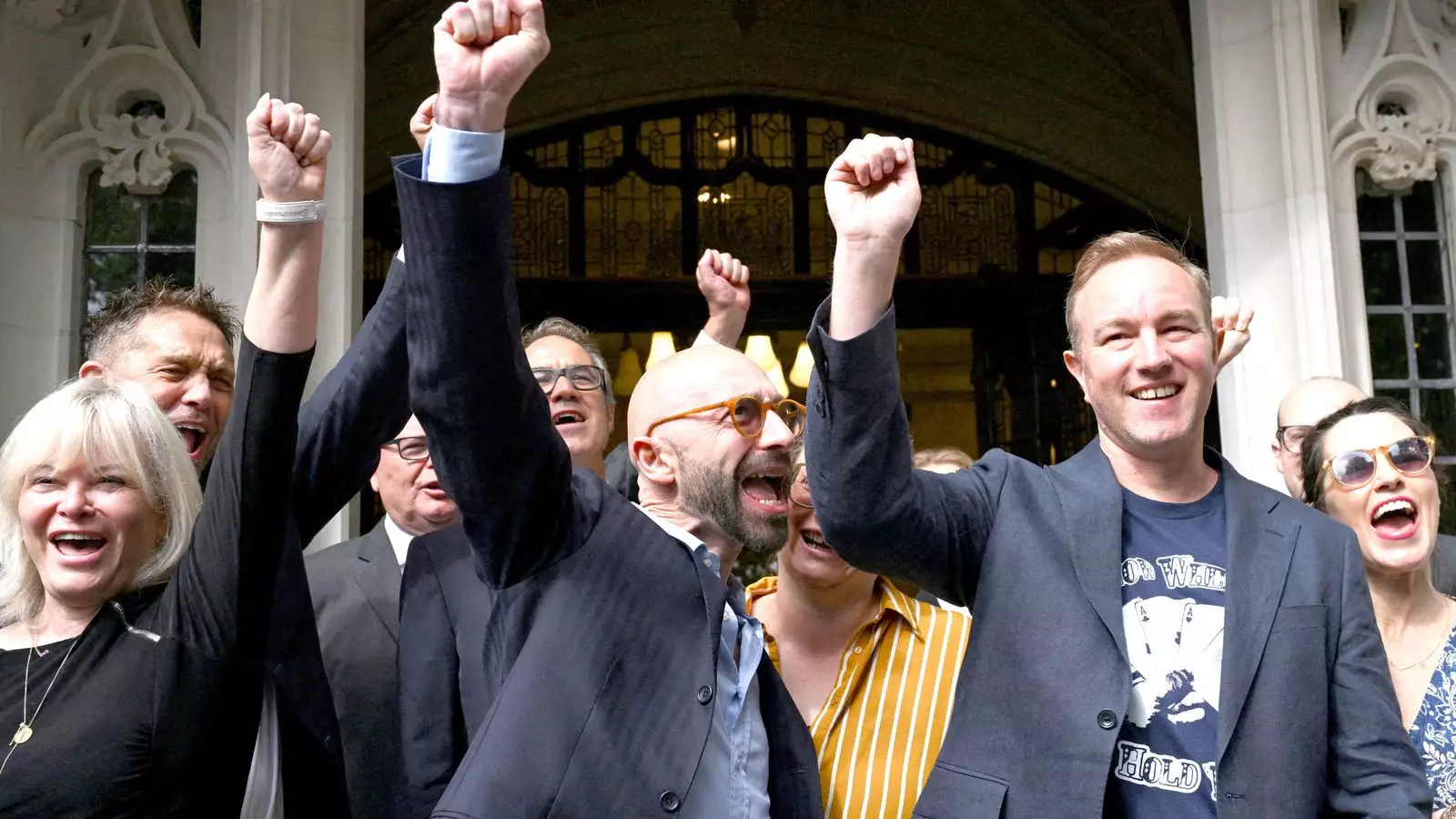In a surprising turn of events, the UK’s Supreme Court has decisively overturned the convictions of traders Tom Hayes and Carlo Palombo, exposing profound flaws in the system that once vilified them as the ruthless architects of a massive financial scandal. This ruling serves as a stark reminder that the narrative of criminal accountability in the financial sector is often more complicated than the headlines suggest—and that perhaps justice, as served in courtrooms, can sometimes be built more on misdirection and flawed assumptions than facts. Hayes and Palombo, once branded as scapegoats for the 2008 financial crisis, have had their convictions nullified not due to new evidence but because of procedural errors rooted in the very processes meant to uphold justice.
Their cases reveal a troubling pattern: the government and regulatory bodies, eager to demonstrate toughness, often lean heavily on a narrative of systemic misconduct by individual traders. Yet, the Supreme Court’s decision criticizes the trial process, highlighting the influence of misdirected jury guidance and the presumption that bankers operate in a legally black-and-white universe. The court’s judgment suggests that what appeared as clear-cut criminal fraud at first glance was, in reality, entangled in a complex web of questionable legal interpretations and corporate culture that implicitly condoned such behaviors. In defending their innocence, both Hayes and Palombo pointed out that their actions reflected the standards of their industry at the time—standards that were later criminalized through a conservative legal lens.
This decision raises important questions about the true nature of accountability in high-stakes finance. If the very legal framework used to condemn these traders was flawed from the outset, how can society unequivocally hold individuals responsible for behaviors that were, in many ways, normalized within their working environment? The ruling hints at a broader failure: that the pursuit of criminal sanctions may have been more about appeasing public outrage and political pressure than genuine justice. This perspective aligns with a center-leaning liberal critique of the “get-tough” approach often employed against financial elites—an approach that sometimes sacrifices nuanced understanding for political expediency.
The Myth of Individual Guilt and the Power of Institutional Culture
The core of the issue lies in the narrative that individual traders like Hayes and Palombo manipulated benchmarks in isolation—an oversimplification that neglects the systemic factors at play. Their convictions were largely based on the premise that they operated in an environment where manipulating Libor or Euribor was inherently criminal—an assumption that ignored the prevalent industry practices of the era. Hayes, a talented mathematician with autism, was portrayed as the mastermind behind an elaborate scheme. Yet, he consistently maintained that his conduct was within permissible parameters, reflecting common industry practices that did not explicitly cross legal boundaries at the time.
The court’s acknowledgment that there was “ample evidence” for conviction if jury directions had been correct exposes a significant flaw: the trial process was insufficiently rigorous in illuminating the nuanced reality of benchmark rate setting. The misdirection, which the Supreme Court rightly identified, undermines the legitimacy of the verdicts, revealing that a legal verdict based on a flawed procedural framework risks imprisoning individuals for behavior that was, at best, ethically questionable but not necessarily criminal in the strict legal sense.
This case underscores the danger of reducing complex cultural practices to individual criminal acts. The obsession with identifying “bad actors” often muffles the recognition that systemic issues—such as weak regulatory oversight, industry-wide complacency, and the pressure for short-term profits—are the real culprits. Hayes and Palombo’s convictions seem more like sacrifices to the larger political and economic narrative—proof that the system is ‘doing something’—rather than genuine reckoning with the structural causes of financial misconduct.
The Consequences and the Broader Implications for Justice
The Supreme Court’s opinion has wide-reaching implications beyond these two traders. Legal analysts suggest that this judgment could potentially open the floodgates for other convictions in the Libor scandal to be revisited or nullified. The possibility of reviewing multiple convictions stokes fears of a systemic miscarriage of justice—one that sacrificed fairness for symbolic punishment. For many, these convictions became a symbol of holding individual traders accountable for the failures of a broader financial system that prioritized profits over integrity.
This case also highlights the importance of establishing a framework where justice is rooted in accurate legal standards and procedural fairness rather than political or media-driven narratives. From a center-liberal perspective, it’s clear that genuine accountability involves holding institutions and corporate cultures accountable—something that cannot be achieved when simplifying complex industry practices into personal criminal acts.
The overturning of Hayes and Palombo’s convictions does not erase the legitimacy of concerns about financial misconduct. Instead, it underscores the need for a more reflective, nuanced approach—one that recognizes the role of systemic influences and enforces accountability at all levels, not just scapegoat individuals in a high-profile scandal.

Leave a Reply